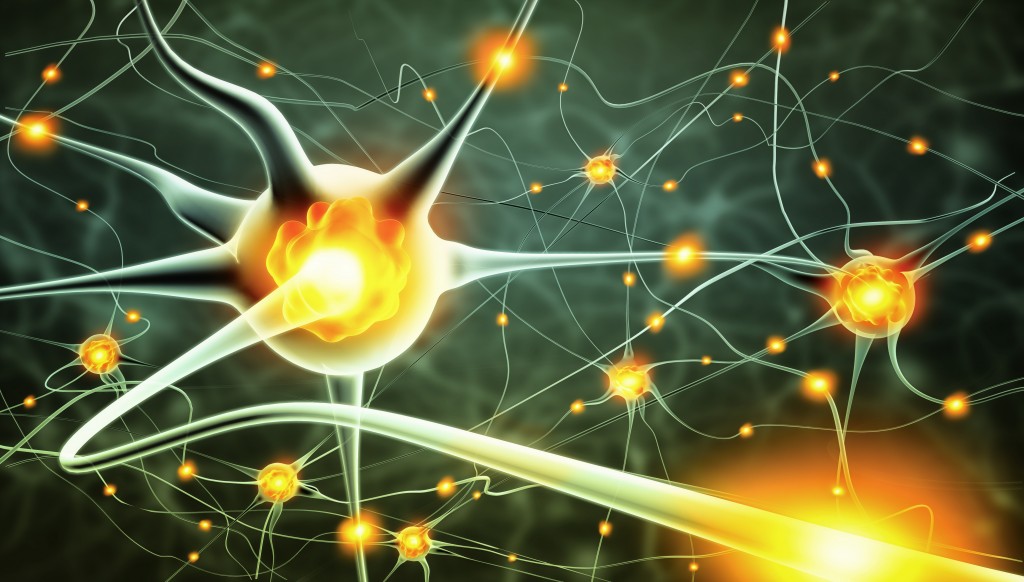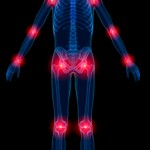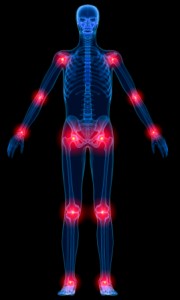
Neurons and nerve pain
For a whole raft of medical conditions (such as diabetes, multiple sclerosis, rheumatoid arthritis,  fibromyalgia and back pain) the day-to-day management of the pain they cause is one of the key requirements for a more productive lifestyle. And not just patients – it is worth mentioning that this also applies to the caregivers as well.
fibromyalgia and back pain) the day-to-day management of the pain they cause is one of the key requirements for a more productive lifestyle. And not just patients – it is worth mentioning that this also applies to the caregivers as well.
The purpose of this blog is to allow our readers to share their experiences of pain management. What worked for you and what didn’t!
Pain management comes in many different forms. Medications (pharmaceuticals) predominate but other interventions such as TENS machines can be used to alleviate pain. Alternative and complementary therapies (including diet) are becoming popular with any different groups.
Anything you wish to contribute to the discussion would be great. However you may want to use the following questions as a way of framing your contribution. However it is totally up to you.
a) What is the primary medical condition which causes you or your loved one pain? How long since your diagnosis?
b) What impact has pain had on your daily life?
c) What treatments for pain have you used?
d) How effective were these treatments?
e) How do you see the future of you journey?
f) If you could give any advice to somebody who has just found out they suffer from chronic pain what would it be?
Have a few of the responses below
“I have sensorimotor peripheral polyneuropathy from an unknown inflammatory disease. I also have fibromyalgia and was diagnosed with lupus in the past but the drs are unsure of this diagnosis (?). I have numbness, tingling and spasms in my feet and it’s traveling up my left calf. I have tried heat, which helps some, but I have to be careful of possible burns. I’ve tried Voltaren gel and this works for a short time. I’ve noticed foods rich in fat and sodium tend to make the neuropathy worse. Moderate cardio exercise for at least 30 minutes a day that doesn’t involve a lot of stress on my feet, such as a recumbent bike, is also helpful. When the pain is very severe, Ive found a terrific rub called “Max Freeze” and it takes away the pain for about an hr or so, especially if I have a hard time falling asleep. I feel this disease did control my life when I was first diagnosed and for the first few years after. I became depressed and felt as if I couldn’t do anything I enjoyed anymore. I didn’t go out anywhere or socialize with anyone. I was miserable. In the past few months I decided I needed to take charge of my life and change my way of thinking or I would be consumed with misery. I changed my diet and lost a few pounds, I changed my attitude and felt more myself. I’m still working on the rest, but I’m a work in progress. I was relying on a dr to fix me to make me have less pain and realized I can’t just rely on the dr to do that or medicine to do that. I need to also take charge too. That’s my advice for anyone going through chronic pain. It’s easy to get caught up in the pain and fall into a depression. Most drs are so loaded with patients and we all want that individualized care that we deserve and pay for, but unfortunately we don’t get it. if there’s something we can take care of on our own, we just have to do and not wait for a dr, I can’t wait for a dr to make my pain go away. They’re not with me at night when I’m crying and trying to find some relief and can’t. I have to figure it out for myself what makes my pain better for me, and for me it’s a pain rub I bought at the drug store or just plain heat.”
“Hi I have fibromyaliga and RA I got diagnosed at 27 yrs old I’m now 30 in its taken a toll on me I 5 end to isolate Alot in just stay in my house or in my bed room the pain is almost everyday a 9 some days a 10 I take pain meds but it don’t seem to work I tryed therapy a couple times it made my body hurt more I see everyone talking about the tens I will see if I can can thar machine at home well god bless in I hope and pray they find a cure”
“My pain has never been worse. It is relentless and I’ve gone from walking miles with the dogs and working in a busy nursery environment with young children to being barely able to walk (i use 2 stick now). I struggle so much with daily tasks – simple things like brushing my hair and peeling and chopping veg.
I recently attended a pain clinic and have been given a TENS machine which really helps me to be a bit more mobile. It masks the pain in my lower back and pelvis when I am walking and I am able to go a bit further, and bit faster and in a bit less pain. I also use it on my upper arms and shoulders and on my wrists as these are the other areas where I get the most debilitating pain.
The pain clinic also equipped me with techniques for relaxation and meditation and set me limits for things such as standing, walking and sitting in one position in the hope that I can dessen the fluctuations of bad days/good days. The aim is to stabilise these swings, get myself into a more stable pattern and consequently reduce the overall pain.
I’ve tried going to the gym and swimming – this worked wonders for me a few years ago and I reached a stage where I could really have a good workout.
Unfortunately in this current phase the more I tried to do the less I was able to do to the point where I could barely get out of bed and needed to lie down after even the simplest and most routine tasks. I had physio sessions also but the physio discharged me because I was literally grinding to a halt.
Gradually with the TENS machine, really focusing on pacing myself every day I am able to get out a little bit more. I am sometimes able to block the pain from my mind using a couple of meditation/yoga techniques in order to get to sleep. I have been told that there are no more drugs or therapies that I can try or explore and that it is just a case of living with and managing my pain with the techniques I have got. I looking at doing a meditation/relaxation course run locally by a Buddhist. It’s costly but I am really interested in the theories behind the techniques and know that I can improve myself in these areas.
I also changed my diet completely earlier this year, cutting out all the things that ONE book suggested might contribute to fibromyalgia symptoms, and adding in foods suggested that might help to alleviate the symptoms.I must confess that I don’t feel in any less pain, I still struggle with sleepless nights and the consequent stupor and falling asleep in the days, BUT i lost 2 stone and do have more pep and energy even if it is in small bursts.
I don’t know what the future holds but I do know that I have done and tried ANYTHING and EVERYTHING to reduce my pain and improve my quality of life. For now I continue with pacing myself, using my TENS to get out for short periods and do little tasks, using the relaxation techniques, being in control of my super healthy diet and for the main keeping a positive attitude which means enjoying what I can do rather than reflecting on and bemoaning what I can’t do.
To everyone out there who lives with pain and/or an invisible condition my best wishes go out to all of you. Take care and remember that you are not alone,””
“I have MS, 2 slipped discs removed, stenosis in the spine, osteoarthritis, osteoporosis and have had 2 knee replacements. I am 51 and the only reason they diagnosed me with Ms was because the MRI scans on my spine showed lesions, even though I had suffered with various Ms symptoms for about 10 years beforehand, including incontinence etc. I have a brother who has had Ms for 30 years so I guessed I had Ms but just couldn,t get my doctors to listen. anyway you can imagine how much pain I am in every day, just sitting is painful and I can,t get enough sleep because I can,t lie down easily without it making my pain worse. my advice to you is physiotherapy, no matter what or how much pain I am in I try to do my exercises every day, I find if I do the exercises it hurts like hell but is much better afterwards and if I don,t exercise I stiffen up and get more pain from the stiffness. It is important you get good physio advice from a specialist centre, I went to a rehab centre for 6 months after my last back operation to get me moving again and guess what, on a good day I can even ride my horse again .. brilliant! it has been a long slow painful 3 year battle since rehab but at least I have some kind of life back. as regards medication I have been on mega doses of morphine but that just makes you constipated and doesn,t get rid of the pain. I take pregabalin for nerve pain, I find quinine is best for leg spasm, but the best pain killer was given to me by my pain management doctor: nabilone, it works on all pain and is brilliant, it is a cannabiloid drug and not all health authorities offer it but you have every right to it if you press your doctors. Hope this helps. X”
” I have been getting RF treatments.(Radio Frequency nerve burnings) Sounds scary but works awesome! But my MS makes my nerves overactive and what should last 6 to over 15 months have been lasting about 5 months.I love it but can’t have it done that often.No side effects except a burning for a few days after.I really wish I could have them all burned from top to bottom! You are almost to the RF stage with the nerve blocks,I would go back to your Pain management docs and ask about this.Again I love them and I just wish my nerves wouldn’t grow back so fast!! I am doing this because I have severe allergies to most of the meds and I am not about destroying other organs in my body with the meds. I have been diagnosed with MS since 94 and been playing these deadly med games for 19 yrs.I had got the onset of tardive dyskenisia from gabapentin and got off it before it became irreversible so I’m just saying I have tried it all and love RF I was fighting my MS w/o meds Just a cpl for anxiety and therapy for mental and pain management and pt. Just living a miserably painful life :/ I hope this helps.GL”
“I have neuropathy nerve pain in the feet as I suffer from type 2 diabetes. because i suffer from nerve pain I find it hard to walk around. therefore going for walks to lose weight is impossible. but I did go to a physciotherapist a few years back and she helped me with exercises in the pool you only need to do these exercises for 20 and trust me you start to feel muscles the next day. one day I thought i’d be clever and do an hours worth well I couldn’t get out of bed the next day I literally had to hobble to get to the toilet i can laugh about it now. but the pain that I suffer from now is worse than when I first got diagnosed and I didn’t get told what to expect so i’ve walked into it blindly and in severe pain. I take medication and pain killers endone and i’m waiting to see the pain clinic to see if they can help, so i suggest for those who have just been diagnosed get a referal from your dr now to get in to see the pain clnic because it takes a long time and by the time u get to this point you’l be thanking me. well for those other people out there please right a comment whether it be brief or long as it will help someone else in the long run. take care each and everyone that is suffering this horrible desease.”
“I had to an emergency c-section to save my little one. I told the doctor doing my epidural that it really hurt and the doctor did not listen. After my surgery I told a nurse that it was hurting a lot and she came up and ripped the epidural out of my back which I was laying on. Ever since I’ve had back problems and none of my doctors will listen to me. Then this year I had to have emergency surgery to repair a hernia and when I woke up I could not feel my left thigh. The doctors did not start looking into what may be causing this until 4 months after my surgery. I have nerve damage to the leg from the surgery. I have been put on a lot of nerve medicine, but I keep having a bad reaction. I either break out in hives or it effects my emotions so bad that it effects my family. I have asked for other options and have been denied. This week my doctors but me on a new medication call Lycira, but was told its in the same family as gamapton”
“If you have just been diagnosed with a pain disorder DON’T PANIC.
The first thing I would do if I had it to do all over again is certainly accept some immediate but limited and simple medication. Then I would find a second opinion as to the cause of the pain. Treating the symptoms without knowing the cause may make it hard for even the best of doctors to find the right treatment for you.
Once you have an accurate diagnosis find a doctor or team of practitioners who support a biopsychosocial treatment model. Your whole life will need to be tweaked: hobbies, family work, exercise, lifestyle, income, relaxation, sleep, attitude, housework, friends, finances. Your treatment approach needs to reflect all of this; painkillers and surgery alone are rarely the solution to chronic pain.
Look at things like massage, diet, meditation, swimming, reduced workload, self hypnosis, adjusted goals, changes in sleep patterns, family counselling, pain management groups; these things will help more than any opiate.
Be accepting of change. Be patient with yourself. If you have a type A personality treat that first: it will be your biggest enemy. Learn to let things go.”
“If you have just been diagnosed with a pain disorder DON’T PANIC.
The first thing I would do if I had it to do all over again is certainly accept some immediate but limited and simple medication. Then I would find a second opinion as to the cause of the pain. Treating the symptoms without knowing the cause may make it hard for even the best of doctors to find the right treatment for you.
Once you have an accurate diagnosis find a doctor or team of practitioners who support a biopsychosocial treatment model. Your whole life will need to be tweaked: hobbies, family work, exercise, lifestyle, income, relaxation, sleep, attitude, housework, friends, finances. Your treatment approach needs to reflect all of this; painkillers and surgery alone are rarely the solution to chronic pain.
Look at things like massage, diet, meditation, swimming, reduced workload, self hypnosis, adjusted goals, changes in sleep patterns, family counselling, pain management groups; these things will help more than any opiate.
Be accepting of change. Be patient with yourself. If you have a type A personality treat that first: it will be your biggest enemy. Learn to let things go.”
“Hi, I’ve been living with severe Fibromyalgia pain for 20 years. I’ve tried most Rx painkillers, muscle relaxers, anxiety pills, antidepressants (such as Cymbalta), Physiotherapy, massage, chiropractor, accupunture, extension board, exercise, diet etc. The only things that work for me is a slow release painkiller and just do things alittle at a time. Ex – only mow the front of lawn, with lots of breaks, do some weeding, rest, trim maybe 2 small trees, break, never over 3 – 4 hours a day. Same as inside housework, laundry, vacuuming, one thing a day unless I’m having a really good day. Haven’t been able to work for 20 yrs and insurance company will not allowed you to volunteer anywhere. Rediculous!! Volunteering gets you out of the house, meeting new people and doing something ‘to give back’. And it’s ‘something different. I also use a rub A 535 no odour and just found a spray (which if you’re really tender & hurting works much better, it’s called DEEP Relief – sprain & strain relief, touch free, from the makers of DEEP Cold. If anybody has ANY SUGGESTIONS, please let us all know. Thanks in advance Deborah M.”
“I have MS also, I was dx’d in 1997. I started having neuropathic pain around 2004, and I was put on tramodol twice a day, and it worked great for a few years. around 2009 I started having more pain, but I was able to stay on the same dose of tramodol, by using exercise and mountain biking as a form of pain management, and that worked great until I had a motorcycle accident in 2012 and injured my knee! I was laid up for several months due to my knee injury! Shortly there after, I had an exacerbation of my MS symptoms, and everything went downhill quite quickly and my pain increased tremendously! I stayed on the tramodol, but added a dose of percocet in the afternoon to my regimen. This however doesn’t seem to be helping with the pain. I was sent to a pain management clinic and due to my fear of becoming addicted to the drugs, my Dr suggested the pain pump delivery system. This is my next step! I am still waiting for the insurance company to approve it. I’ll post again with the results as soon as I get the surgery!”





